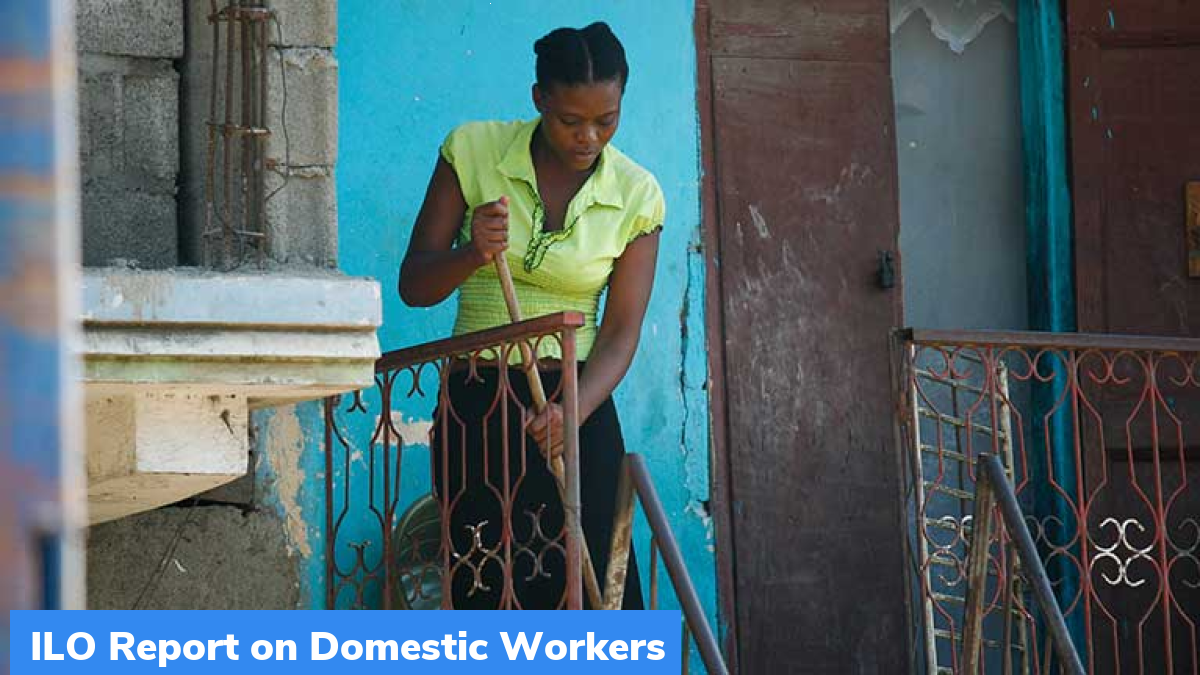ILO Report on Domestic Workers
The International Labour Organisation (ILO) recently released its report on Domestic Workers. According to the report, only 6 % of domestic workers across the world have access to comprehensive social protection.
Key Findings
- Report notes that, 94 per cent of the domestic workers are lacking access to full range of protections, covering medical care, old age, sickness, unemployment, family, maternity, employment injury, invalidity and survivors’ benefits.
- Extension of effective coverage is lagging significantly behind the legal coverage.
- In reality, only one-in-five domestic workers are covered in practice because majority are employed informally.
- Despite their vital contribution to society, they are supporting households with their most personal and care needs.
- 6 million domestic workers of the world face multiple barriers in enjoying legal coverage and effective access to social security.
- They are usually excluded from national social security legislation.
Women Domestic Workers
Report notes that, around 76.2 per cent (57.7 million) of domestic workers are women. Thus, social protection gaps leave women vulnerable, in particular. Few domestic workers enjoy comprehensive social protection. They are likely to be eligible for old-age, disability and survivors’ medical care and benefits. A few are eligible for maternity benefits and sickness benefits. Many of them do not enjoy access to social insurance schemes benefits related employment and unemployment injury.
Regional Differences
ILO report highlighted major differences across regions. In Central Asia and Europe, 57.3 per cent of domestic workers are legally covered for all benefits. Around 10 per cent have enjoy such right in Americas. None of the workers are fully covered in the Arab States, the Pacific, Asia and Africa regions.
Impact of Covid-19 pandemic
COVID-19 pandemic has further widened the social protection coverage gaps experienced by domestic workers. They were hard-hit during the pandemic due to job loss and livelihood loss. They could rarely rely on adequate health protection and unemployment of sickness benefits.
Recommendations to ensure social protection for domestic workers
The report provides following recommendations:
- Ensure that domestic workers enjoy conditions as those existing for other workers.
- Customize and simplify administrative procedures, to ensure legal coverage.
- Streamline and simplify registration and payment procedures
- Design benefit systems, which can suit specificities of domestic work.
- Raise awareness among them and their employers about their rights and obligations.
Month: Current Affairs - June, 2022
Category: Reports & Indexes Current Affairs


